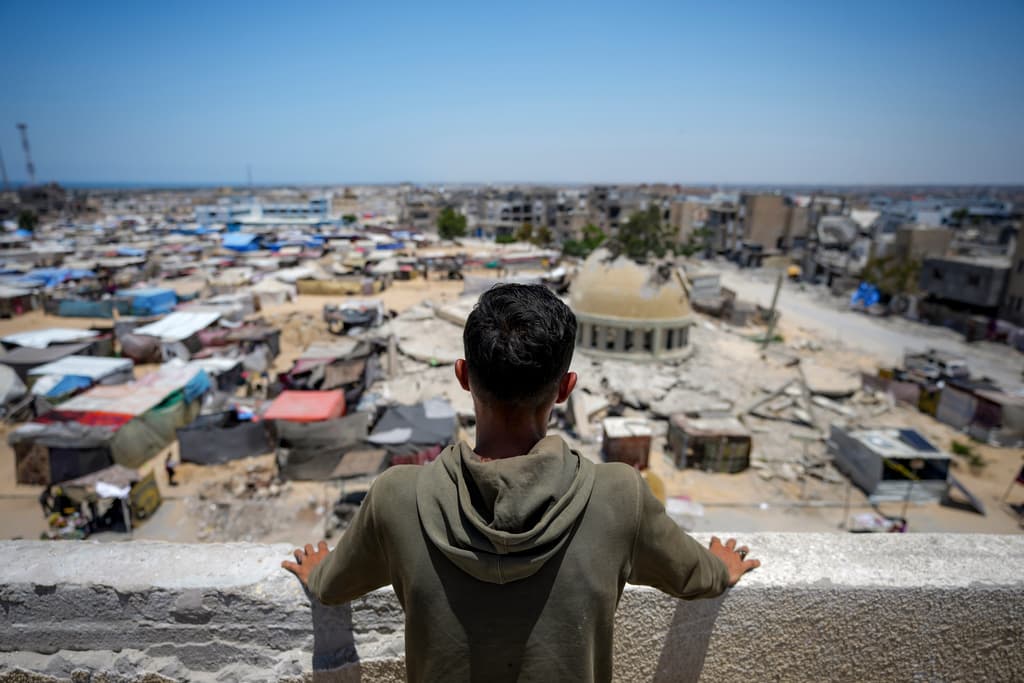Bedwetting, nightmares, depression, and parents who cannot take care of their children. After months of war, Gazans are suffering from trauma and constant fear.
I cannot give my children what they need, says Hamada, who lost a newborn son.
When the war just began, 40-year-old Nabila Hamada gave birth to twin boys at al-Shifa Hospital in Gaza City. The hospital was full of displaced people and smelled of rotting bodies in the corridors.
When Israeli forces threatened to attack the hospital, Nabila and her husband fled with only one of the twins. The other was too weak to leave the hospital. Shortly after, Israeli forces struck, and Nabila never saw her newborn son again.
The trauma has made her unable to do most things – she can no longer handle daily tasks or take care of her family.
I cannot take care of my older children or give them the love they need, she tells the AP news agency.
Children most vulnerable
Nabila is one of hundreds of thousands of Palestinians struggling with mental health issues due to the war, which broke out after Hamas' terrorist attack on Israel on October 7.
Many have lost family members, experienced bombings, and fled. According to experts, depression, anxiety, sleep disorders, and anger are common. Children are most vulnerable, especially since many parents cannot take care of them.
There are around 1.2 million children in need of support for mental health. It's basically all children living in Gaza, says Ulrike Julia Wendt, care coordinator at the organization Rescue, to AP.
Afraid of loud noises
Repeated displacement worsens the suffering. Nearly two million of Gaza's 2.3 million inhabitants have been displaced from their homes, and many live in tent camps without access to clean water and food.
Many children have nightmares and have become bedwetters. Nashwa Nabil in Dayr al-Balah in central Gaza tells that her three children, aged between 10 and 13, have lost all sense of security since the war broke out.
They can no longer control themselves, wetting their beds and biting their clothes. They scream and are aggressive, she tells AP.
As soon as the children hear loud noises, they lie down in a fetal position or run and hide far from buildings, fearing they will be bombed.
When my son Moataz hears a plane or a tank, he hides in the tent.






